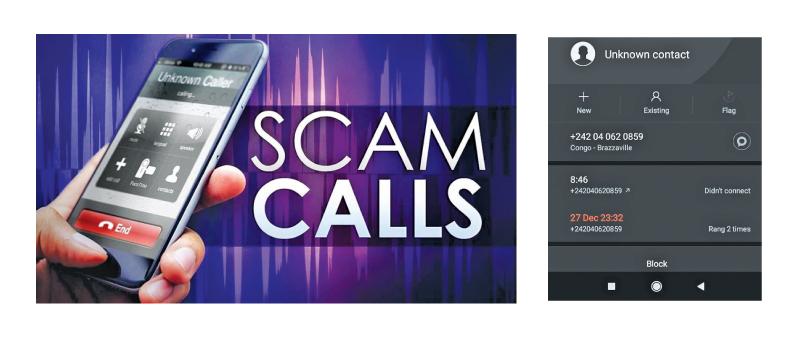
Technology being the driving force in the 21st century, the progress of the world has been fast-tracked in multiple ways. This very nature is seen in our day-to-day life as well. For instance, a person who uses technology does not have to visit restaurants nowadays to select his/her favourite food, does not need to go to the bank, and does not have to stay in queues to pay the water bill. Literally, the whole world is now at our fingertips thanks to our SMARTphones.
However, the same smartphone has become a magnet, in terms of financial frauds all over the world, where Sri Lankans are also victimised. In the latest of such scams, Sri Lankans have received phone calls from African countries, such as Chad, Burundi, Mozambique and Morocco.
The issue was raised through social media, mainly WhatsApp and Facebook. Later the official body, the Telecommunication Regulatory Commission of Sri Lanka (TRCSL) also announced that the scam is real based on complaints received.
“We received complaints from the public about this scam. Some had been charged about Rs 30,000 as a result,” TRCSL Director Menaka Pathirana told the Sunday Observer.
Explaining the precautionary measures by TRCSL and service providers, she assured that the spread of the scam has been controlled. “For instance, if there are 100 calls generated from the same IDD number, our service providers (Dialog/ Mobitel/ Hutch/ Airtel) have mechanisms to identify those suspicious calls. Then a further generation of fake calls is automatically avoided,” Pathirana said.
 People had received ‘missed calls’ from these African countries (+235 6452256 (Chad) and 212,621-001782 (Morocco), generating curiosity among the public to call back those numbers. Once a person calls back that number, a huge sum of money will be charged to the bill of the person who is making the call.
People had received ‘missed calls’ from these African countries (+235 6452256 (Chad) and 212,621-001782 (Morocco), generating curiosity among the public to call back those numbers. Once a person calls back that number, a huge sum of money will be charged to the bill of the person who is making the call.
Thrimal Katepearachchi, a businessman in Horana had received a call from Congo while he knows no one from the Central-African country. He had received two calls from the suspicious foreign phone number, +242 04 062 0859, but he had not noticed the call during rings.
“The missed call was listed in the phone and I accidentally called back. But I disconnected the line quickly. I think it did not ring at the other end,” Katepearachchi said.
Two years ago Sri Lanka faced a similar scam called ‘one ring scam’ where only one ring would come into the phone, which urges the receiver to call back.
According to foreign media reports ‘one ring scam’ is the most common type of phone-related crimes reported in the world. As per their calculations, the telecom sector costs more than 29M USD each year only by ‘one ring scam’.
In addition to missed calls, there is a tendency of spreading a similar scam through SMS. Experts have identified an SMS scam that would ask people “please urgently call back” on a fraudulent number.
In any of these cases, if the victim does call back, he/she will possibly have to bear high mobile charges. This may include connection fees, conversion and transfer charges resulting in a huge bill. Scammers will also make a full attempt to keep the victim online for as long as possible, to earn as much as possible. They might also keep a caller on hold to keep the victim on call for a longer period.
